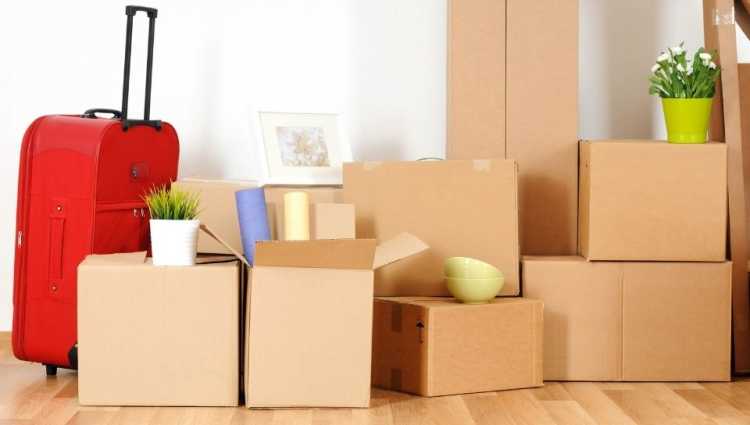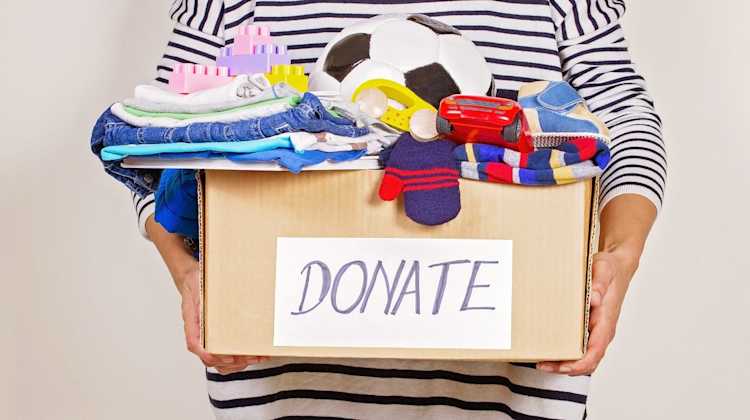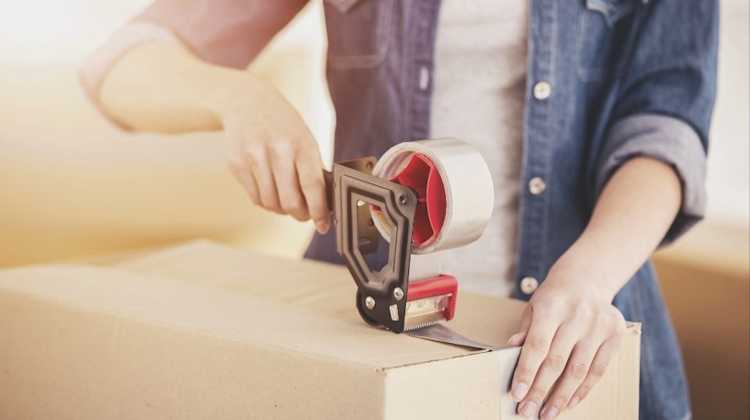6 Things to Purge Before an OCONUS Move
by Becca Stewart - January 10th, 2022

Moving overseas is exciting – but it’s also a big change. Knowing what to keep and what to purge can make your experience more enjoyable.
Reasons to purge before PCSing overseas
First and foremost, expect your overseas living situation to be much different. Most homes at OCONUS locations won’t have the closet space, storage areas, or ample cabinets we Americans know and love. If you have a garage, it will likely be small, with barely enough room for your car.
Even on-base housing is typically smaller than the average American home. Living overseas takes some adjusting – and it’s easier to start that adjustment in your current location.
What to purge before moving OCONUS
Purging unnecessary items will make your move a little less stressful. Sorting through your belongings is easier in a familiar environment. You’ll also have easy access to long-term storage should you need it.
1. American appliances
Most OCONUS locations use 220-volt power, with varying plugs and outlets. With few exceptions (Alaska and Hawaii are considered OCONUS), your American appliances and electronics will not work without an adapter or power transformer. Even then, the voltage differences can cause irreparable harm to your devices.
When you get those OCONUS orders, start taking stock of your appliances and electronics. Washers, dryers, and other large appliances should be stored or sold before your PCS. Consider replacing computers, televisions, stereo systems, and other electronics or finding adapters that work at your OCONUS location.
Most of your smaller kitchen appliances can be purged. Most OCONUS installations have a loan locker or thrift shop where you can find inexpensive or free replacements.
2. Outdoor Equipment
Many countries have strict laws designed to protect the local environment from foreign contaminants. In Germany, for instance, you cannot bring anything containing loose soil, grass seeds, or other foreign plant species. That means your outdoor equipment, like lawnmowers, shovels, and other dirt-covered items, could be considered illegal at an OCONUS location unless they are spotless.
While some ports will be stricter than others, it’s better to be safe than sorry. Either clean all outdoor equipment and furniture thoroughly before packing day, or leave these items behind.
3. Large Furniture
My family once moved into an early-20th-century European house with a narrow, spiral staircase. It was lovely – until our queen-sized box spring arrived, and it wouldn’t fit up the stairs. We ended up sawing it in half to get it up the stairs, then screwing it together with a few metal braces.
Our story isn’t uncommon. Many service members have watched in horror as their favorite piece of furniture fails to fit inside an overseas home. Rooms are small, and staircases are narrow. Your wrap-around sectional might not work in a Japanese living room. Consider purging that large furniture before you PCS overseas.
4. Weapons
In most instances, moving a weapon to a foreign country is a hassle. Some countries forbid service members from transporting weapons into the country altogether. Others allow service members to own certain types of firearms but have strict registration and storage requirements.
In addition, service members living on an OCONUS base may face additional restrictions.
Check with your gaining installation’s travel management office (TMO) for information about transporting and owning weapons overseas. Forbidden weapons should be responsibly sold or placed in long-term storage until your return.
5. Large Cars
In most cases, the military will pay to transport one car to your OCONUS gaining installation. However, before shipping an SUV, minivan, or pick-up truck, consider where you’re moving. Are the streets narrow? Is gasoline more expensive? Will you be able to navigate the country with an American-sized vehicle?
In many cases, taking a large car to an overseas location isn’t the best choice. You may want to consider storing or selling your large vehicle. Then, you can purchase a smaller car before your PCS and have it transported overseas or wait to purchase a vehicle at your new location.
6. Clutter
As mentioned above, most overseas houses are much smaller than American homes. Before your PCS, take a look around your American house. Are your shelves and countertops full of clutter? Are your closets full of rarely-worn clothing? Do you have toys, books, or other items that are collecting dust? Now is the time to rid your home of the extra “stuff.” If it feels like clutter now, it will be unbearable in a smaller overseas house.
Final Notes
We used the word “purge” a lot here, but not everything should go by the wayside. Some of the items mentioned above can certainly go into storage until your return, either at a paid storage facility or with a friend or family member.
However, some things simply don’t need to stick around. Take a hard look at the “stuff” around you and ask yourself if it’s worth the effort. When you return to the States several years from now, will you be happy to have that item? Or is it something you can part with?
Sort out everything that won’t make the trip overseas. Now, sort each item into one of four piles: Trash, Donate, Sell, Store.
A little effort on this side of the ocean will mean a lot less stress when you arrive overseas.







